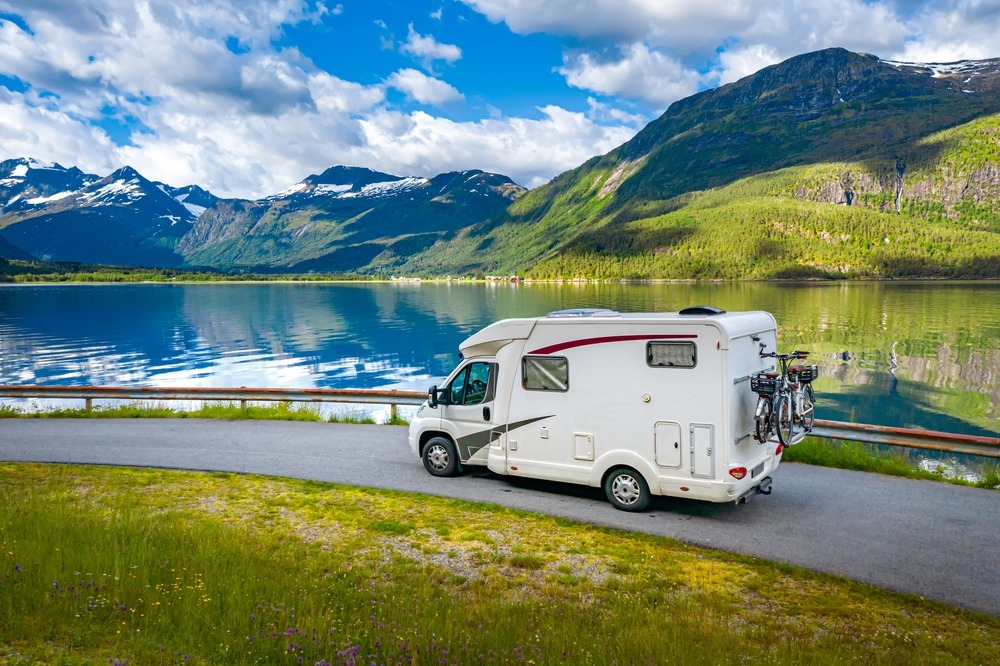High-Altitude Camping Tips RVers Need to Know
The Denver metro area may be the Mile-High City, but if you’re like many RVers, you dream of heading deeper into the mountains and camping at even higher elevations to visit places like Jellystone Park of Estes Park, Sugar Loafin’ Campground in Leadville, or Arrowhead Point Campground & Cabins in Buena Vista. Though it might seem like you can just pick your RV up from your storage facility and park at your preferred campground, camping at high altitudes requires a little extra preparation. Here are a few tips to keep in mind before you head into the mountains.
Check the Weather Before You Go
The weather at high altitudes can change quickly but weather reports will give you a general idea of what to expect when you arrive. Before you leave, check the projected weather for the duration of your stay and pack accordingly. You may also want to pack additional layers or rain gear just in case. Afternoon storms can roll in quickly and without warning. While they typically pass in an hour or two, they can cause the temperatures to drop more than expected and those extra layers and rain gear can help keep you comfortable.
Pack Extra Water
When you’re at high altitudes, you’ll get dehydrated faster than you would at home. Keep this in mind as you pack for your trip. Fill your fresh tank if you’re boondocking and be sure to pack extra drinking water to extend your supply and help you stay hydrated. You may also want to pack electrolyte water or Gatorade to help combat the effects of altitude sickness and replenish minerals you may lose faster while you’re moving around. Remember, if you’re feeling thirsty, you’re probably already dehydrated and should drink some water immediately.
Consider Getting Your Propane Adjusted
Propane doesn’t burn as efficiently at higher altitudes. In fact, anything over 5,000 feet in elevation can put strain on your system. If you tend to camp at high altitudes often, you may want to get your propane system adjusted for the altitude. Your dealership or service and repair provider can install high-altitude connections on your propane system to compensate for the change in elevation. With these systems in place, your propane will work the way it’s supposed to.
Take It Easy
Spending any time at high altitude elevations can strain your body if you’re not used to it. Once you arrive, take your time and don’t push yourself for the first few days. This will give your body a chance to adjust to the altitude and may help you avoid altitude sickness. If you do start to feel unwell, drink plenty of water and rest as much as you can. Think of it as the perfect excuse to sit outside in your camp chair and enjoy the scenery.
Need to fill your fresh tank or give your RV a good cleaning before you hit the road? Our convenient locations give you access to everything you need while providing a safe and secure storage space. Reserve your spot online today.
Go Back Check the Weather Before You Go
The weather at high altitudes can change quickly but weather reports will give you a general idea of what to expect when you arrive. Before you leave, check the projected weather for the duration of your stay and pack accordingly. You may also want to pack additional layers or rain gear just in case. Afternoon storms can roll in quickly and without warning. While they typically pass in an hour or two, they can cause the temperatures to drop more than expected and those extra layers and rain gear can help keep you comfortable.
Pack Extra Water
When you’re at high altitudes, you’ll get dehydrated faster than you would at home. Keep this in mind as you pack for your trip. Fill your fresh tank if you’re boondocking and be sure to pack extra drinking water to extend your supply and help you stay hydrated. You may also want to pack electrolyte water or Gatorade to help combat the effects of altitude sickness and replenish minerals you may lose faster while you’re moving around. Remember, if you’re feeling thirsty, you’re probably already dehydrated and should drink some water immediately.
Consider Getting Your Propane Adjusted
Propane doesn’t burn as efficiently at higher altitudes. In fact, anything over 5,000 feet in elevation can put strain on your system. If you tend to camp at high altitudes often, you may want to get your propane system adjusted for the altitude. Your dealership or service and repair provider can install high-altitude connections on your propane system to compensate for the change in elevation. With these systems in place, your propane will work the way it’s supposed to.
Take It Easy
Spending any time at high altitude elevations can strain your body if you’re not used to it. Once you arrive, take your time and don’t push yourself for the first few days. This will give your body a chance to adjust to the altitude and may help you avoid altitude sickness. If you do start to feel unwell, drink plenty of water and rest as much as you can. Think of it as the perfect excuse to sit outside in your camp chair and enjoy the scenery.
Need to fill your fresh tank or give your RV a good cleaning before you hit the road? Our convenient locations give you access to everything you need while providing a safe and secure storage space. Reserve your spot online today.
